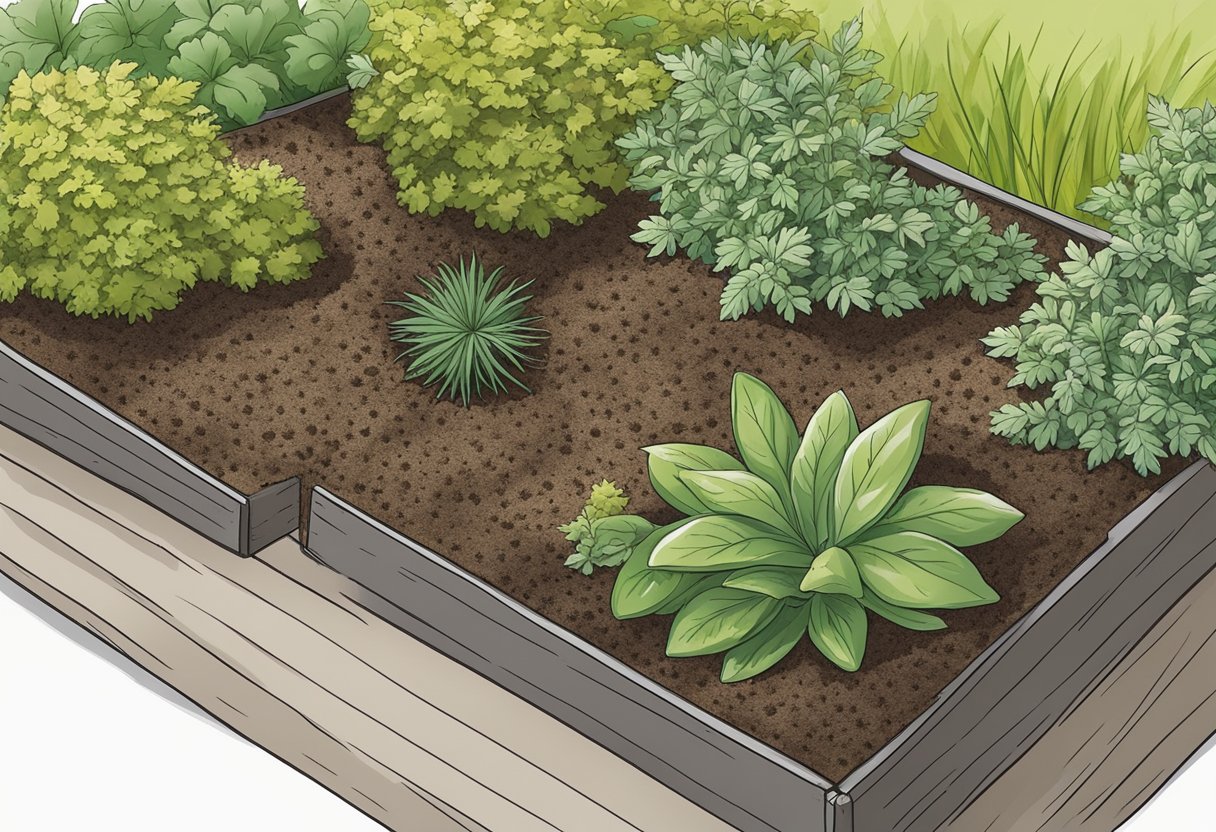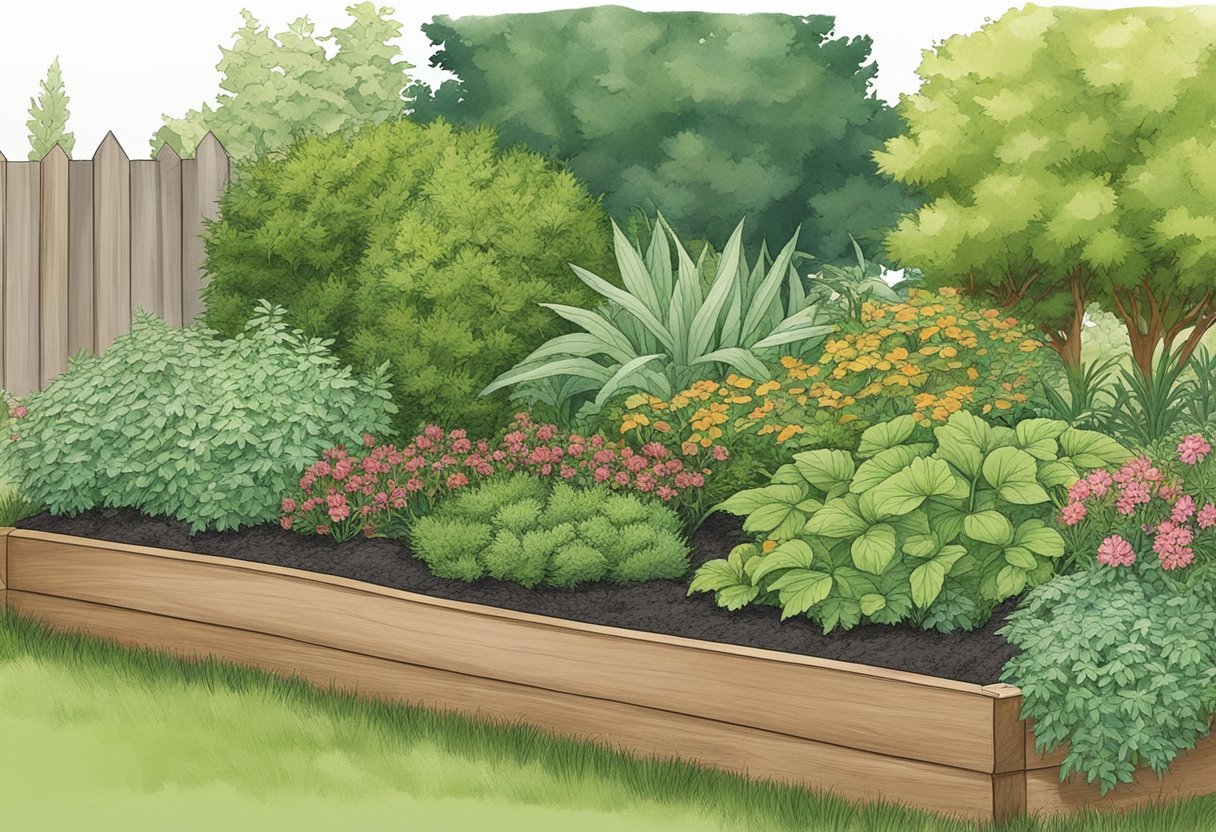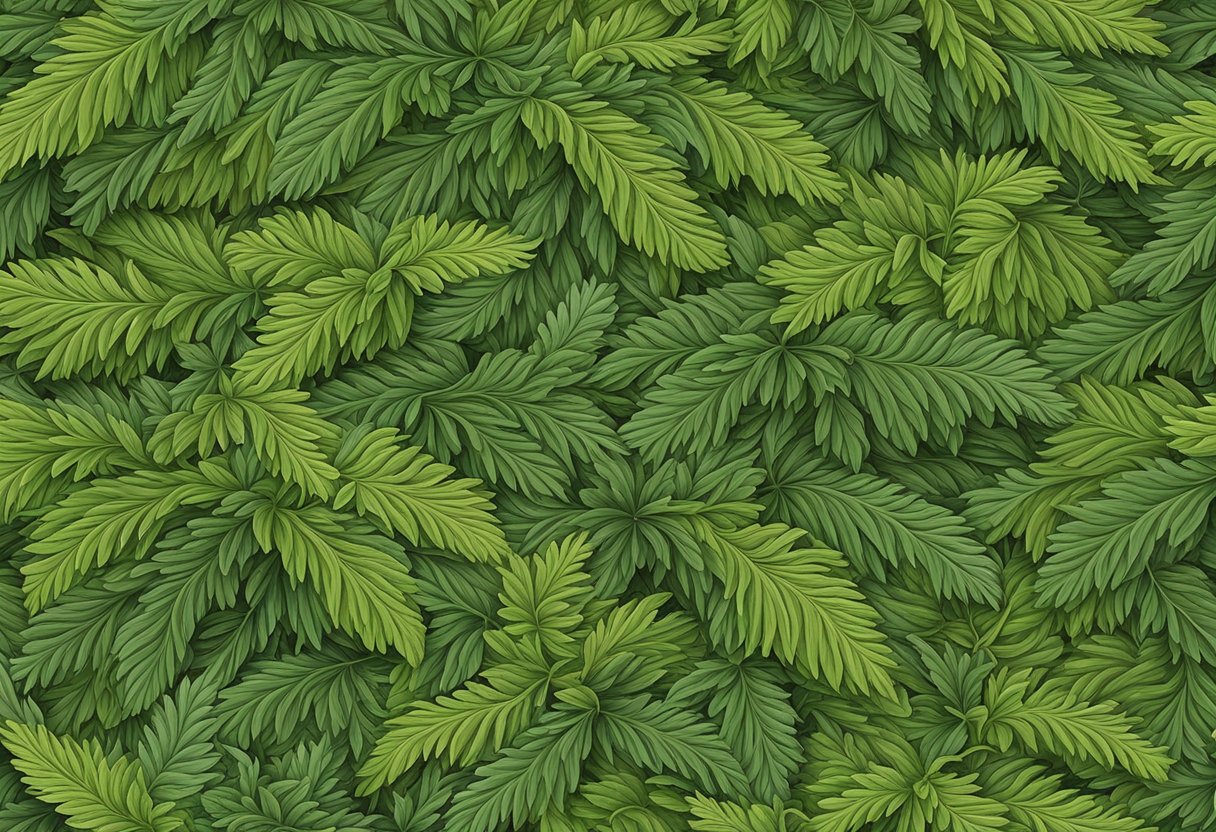As avid gardeners and landscapers, we’re constantly on the lookout for materials that can enhance the health and appearance of our green spaces. Mulch is a fundamental component in this pursuit, serving as a protective layer over the soil.
Among various types of mulches, hemlock mulch stands out for its distinct qualities. Derived from the bark of hemlock trees, this mulch is favored for its dark color and fine texture, which can add a polished look to garden beds and landscapes.

Our experience with hemlock mulch has shown it to be a durable option that offers longevity in the garden. It doesn’t break down as quickly as other mulches, which means it provides lasting coverage and requires less frequent replenishment.
The high concentration of tannins found in hemlock bark naturally deters pests, making this mulch an attractive choice for those seeking to maintain a garden without the added stress of pesky invaders.
However, as with any gardening product, it’s important to weigh these pros against potential cons to make the most informed decision for our landscapes.
Advantages of Hemlock Mulch

Hemlock mulch offers a combination of aesthetic, horticultural, and environmental benefits, making it a valuable choice for gardeners and landscapers focused on the health of their soil and plants, as well as safety in their outdoor spaces.
Aesthetic Appeal and Fit for Landscaping
- Color: The dark hue of hemlock mulch adds visual contrast to garden beds, highlighting the colors and textures of various plants and trees.
- Landscape Integration: It seamlessly integrates with a range of garden designs, enhancing the overall look of the landscape.
Soil Health and Plant Growth
- Nutrient Contribution: As an organic mulch, hemlock breaks down over time, contributing valuable nutrients like nitrogen to the soil.
- Moisture Retention: Hemlock mulch helps maintain soil moisture by reducing evaporation, which is crucial for plant health.
- Temperature Regulation: The mulch acts as an insulator, keeping roots warmer in winter and cooler in summer.
Environment and Safety Considerations
- Non-Toxic: Unlike some other mulches, hemlock is non-toxic, making it a safer choice around pets and wildlife.
- Pest Repellent: Its natural oils are known for being unattractive to many common pests, which can help keep them away from plants.
- Weed Control: A proper layer of hemlock mulch can suppress weed growth, reducing the need for herbicides or frequent weeding.
Disadvantages of Hemlock Mulch

While hemlock mulch offers benefits, we must also consider its disadvantages to make an informed landscaping decision.
Cost and Availability Factors
Hemlock mulch is often more expensive than other types of wood mulch due to limited availability. We find that the cost can influence budget-conscious decisions, and the regional scarcity impacts accessibility for widespread use.
- Price: Oftentimes higher than other mulches
- Availability: May not be readily available in all regions
Maintenance and Durability Challenges
Despite its resistance to termites and mold, hemlock mulch might still face durability issues.
- Mildew: Can occur in damp environments
- Heavy Rains: Mulch may wash away, requiring replenishment
- Staining: Possible discoloration on nearby surfaces
Potential Risks to Plant and Animal Health
There are environmental considerations we must not overlook when using hemlock mulch:
- Poison Hemlock Confusion: Ensure mulch is not from the toxic plant, poison hemlock
- Bacteria: Over time, wood mulch can harbor harmful bacteria
- Slugs: Attracts slugs, which are pests to some plants
- Dogs: If dogs ingest wood mulch, it may pose a health risk